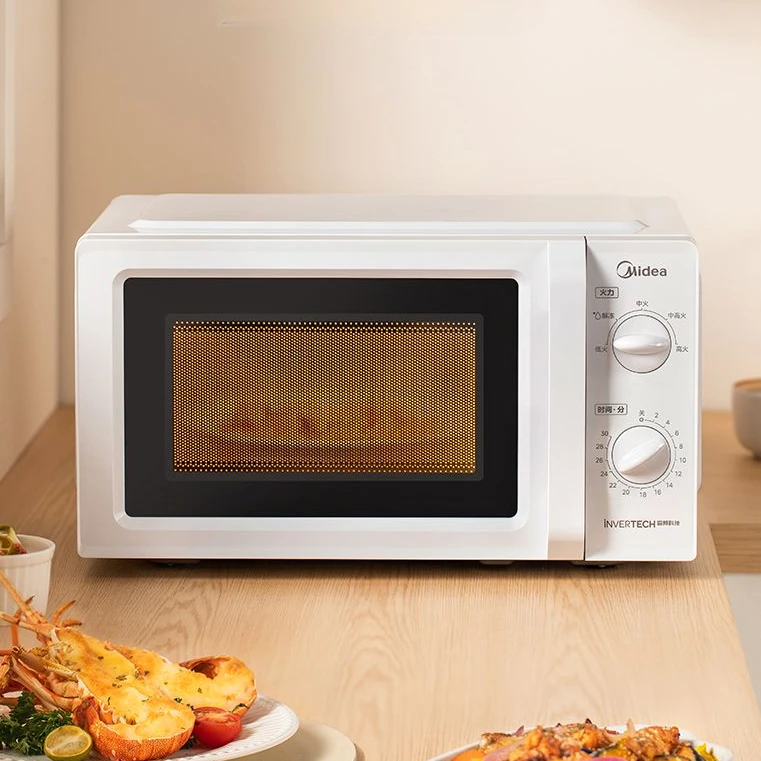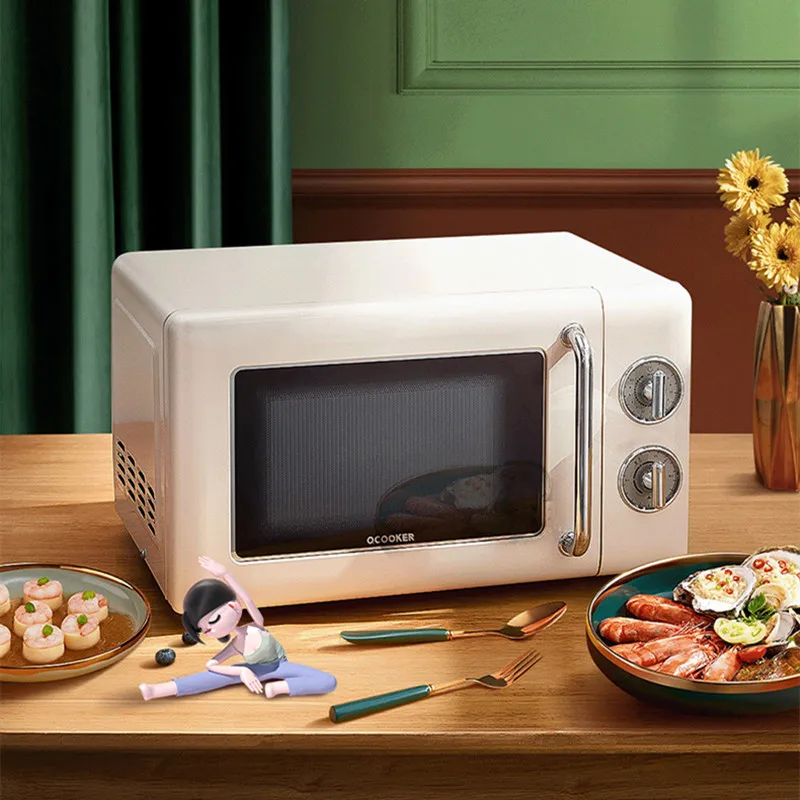Microwaves are the unsung heroes of modern kitchens. They provide a quick and efficient way to reheat leftovers, defrost frozen meals, and even cook certain dishes. However, like all appliances, microwaves have a lifespan. So, how long does a microwave last? This question can lead to various discussions about the factors that affect the longevity of these handy appliances, recognizing the signs of wear and tear, and understanding the maintenance required to maximize their lifespan.
The Average Lifespan of a Microwave
On average, a microwave oven lasts anywhere from 9 to 11 years. However, this range can vary significantly based on several factors. Some microwaves might last only a few years, while others can exceed the average lifespan by a considerable margin. So, what influences the durability of your microwave?
Factors Influencing Microwave Longevity
Quality of Manufacturing
The quality of a microwave’s construction plays a crucial role in its lifespan. Higher-quality brands typically use more durable materials and engineering reflexes that contribute to longer-lasting performance. Whenever you’re considering a purchase, it’s essential to evaluate brands that have a strong reputation for quality and reliability.
Frequency of Use
How often you use your microwave can impact its lifespan. A microwave used daily for multiple meals will likely wear out faster than one that is used occasionally. If you constantly rely on your microwave for cooking, consider investing in a more robust model or be prepared for a shorter lifespan.
Maintenance
Routine maintenance is critical for any appliance, and microwaves are no exception. Proper care can significantly extend the life of your microwave. Regular cleaning, for example, not only helps maintain the appliance’s aesthetics but also prevents food particles from causing damage.
Type of Microwave
Different types of microwaves offer various features and functionalities. Countertop microwaves, built-in microwaves, and over-the-range models can have different lifespans depending on their design and usage. For instance, built-in microwaves often have more complex features but can also last longer if adequately maintained.
Cooking Habits
Your cooking habits can also affect your microwave’s longevity. Cooking meals that require longer cooking times or higher power levels can put additional strain on the appliance. In contrast, using methods such as steaming or defrosting may allow the microwave to operate more smoothly.
Signs Your Microwave May Need Replacement
Even with proper care and a good brand, your microwave will eventually reach the end of its service life. Recognizing the signs can help you make a timely decision about whether to repair or replace it.
Uneven Heating or Cooking
If you notice that your food isn’t heating evenly or requires more time than usual to warm up, it could be a sign that the microwave is losing its heating efficiency. Magnetron deterioration often causes this issue.
Odd Noises
Strange sounds, such as buzzing, grinding, or sparking, should never be ignored. These noises may indicate internal issues that can lead to more severe problems. In some cases, these sounds may point toward a failing magnetron or an issue with the microwave’s motor.
Buttons Not Responding
If buttons begin to fail or won’t respond, it may indicate issues with the control panel. While some control panels can be repaired, severe faults could necessitate a complete replacement, especially on older models.
Excessive Smell or Smoke
A burning smell or smoke emanating from the microwave is often a major red flag. If these occur, stop using the microwave immediately, and consult a technician or consider replacement.
Rust or Damage
Physical damage, such as rust or cracks, can compromise your microwave’s integrity. If the interior is rusted, using the microwave can pose health risks due to contamination.
Tips for Maintaining Your Microwave
Ensuring your microwave has a long life requires consistent care and maintenance. Here are some helpful tips to ensure your appliance lasts as long as possible.
Regular Cleaning
Clean your microwave regularly to avoid residue buildup. Food particles can impact functionality and produce unwanted odors. Use a soft cloth and soapy water to clean the interior surfaces and avoid abrasive cleaners that could scratch the surface.
Avoiding Metal
Microwaves work by generating microwaves that cause water molecules in food to vibrate, generating heat. Metal can reflect these microwaves, leading to arcing and potentially damaging the microwave. Always use microwave-safe containers and avoid placing metal objects inside.
Proper Ventilation
If you have an over-the-range microwave, proper ventilation is crucial for dispersing cooking odors and heat. Ensure the air vents are clean and unobstructed to prevent overheating and damage.
Checking the Door Seal
The door seal is vital for microwave operation. If you notice any gaps or damages in the seal, it can lead to leaks of microwave radiation, which is dangerous. Regularly inspect the door and hinges to ensure proper sealing.
Avoiding Overloading
When microwaving food, avoid overloading the appliance. Providing ample space allows microwaves to circulate and heat food evenly, minimizing stress on the microwave’s components.
When to Consult a Professional
If your microwave begins showing signs of wear or malfunctions, it can be tempting to handle the repairs yourself. However, certain issues are best left to professionals. Knowing when to call a technician can save you time and potential hazards.
Issues with Magnetron
The magnetron is one of the essential parts of any microwave. If this component fails, replacing it can be cost-prohibitive. If you’ve ruled out minor issues like blown fuses or faulty plugs, consult a technician to evaluate whether a repair is feasible.
Circuit Board Failures
Microwave control circuit boards manage the cooking process and user interface. Issues with these fragile electrical components can often lead to failure. If your microwave exhibits erratic behavior, this could be a sign of control board malfunction and typically should be addressed by an expert.
Electrical Problems
Any electrical problems should always be handled by a professional. Loose wiring, faulty power connections, or any burning smells should prompt you to disconnect the appliance and consult a technician immediately.
 Cost Analysis: Repair vs. Replacement
Cost Analysis: Repair vs. Replacement
When your microwave shows signs of wear, you may face the dilemma of repairing versus replacing it. To make a sound decision, consider the costs associated with both options.
Repair Costs
The cost to repair a microwave can range significantly, often between $50 and $150, depending on the issue’s complexity. Minor repairs, such as fixing the door latch or replacing a fuse, are generally cheaper. However, major repairs like magnetron replacement can cost upwards of $200, which might approach the price of a new microwave.
Replacement Costs
The price of a new microwave can vary widely, with countertop models starting around $100 and high-end, built-in models exceeding $1,000. If the cost of repairs approaches the price of a similar replacement, it might be more prudent to invest in a new appliance.
Other Considerations
Beyond the financial aspects, consider the age of your microwave. If it’s nearing or past the 10-year mark and experiencing issues, replacing it may be the more sensible choice. New models also come with improved energy efficiency, advanced features, and better warranties.
Conclusion
How long does a microwave last? On average, between 9 to 11 years, with various factors influencing its lifespan. Regular maintenance, quality of the appliance, and frequency of use all play critical roles in determining how long your microwave will function effectively. By recognizing the signs indicating that a replacement may be necessary, you can avoid inconveniences and potential hazards. Understanding when to repair versus replace ensures that you make informed decisions, contributing to the safety and efficiency of your kitchen. Investing in quality will not only save you from additional repairs but will also provide you with a reliable appliance that enhances your culinary experience for years to come.



